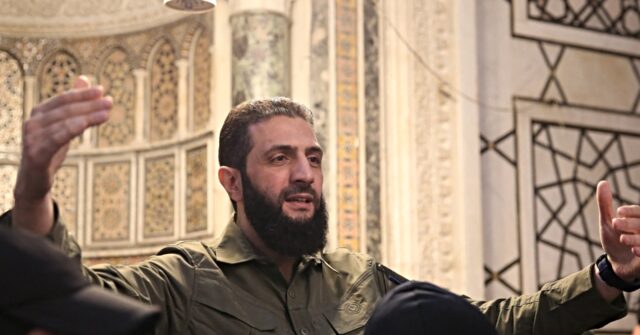In a recent interview with France 24, Abu Mohammed al-Jolani, now referring to himself as Ahmed al-Sharaa, portrayed himself as a reformed statesman following the ousting of Syrian President Bashar Assad by his group, Hayat Tahrir al-Sham (HTS). HTS, a known offshoot of al-Qaeda, has been a significant player in the chaos of the Syrian Civil War that began in 2011. Amid numerous clashes involving various factions, it was a surprising assault on Aleppo by HTS in late November that led to Assad’s rapid decline and eventual exile. This attack not only marked a pivotal shift in power dynamics within Syria but also signified the end of over half a century of Assad family rule.
Following the HTS takeover, particularly the capture of Aleppo and the advancement towards Damascus, the situation for Assad quickly deteriorated, culminating in his family obtaining political asylum in Russia. This drastic turn of events generated excitement among radical Islamist groups globally, further highlighting the complex and often violent landscape of the Syrian conflict. Despite HTS being designated as a terrorist organization by the United States, al-Sharaa insists that he has moderated his views and rejected extremism, presenting a vision for reconstructing Syria rather than pursuing violent jihad or sectarian cleansing.
In his interview, al-Sharaa expressed a focus on stabilizing the region and facilitating the return of displaced Syrians. He described the need for a government structure that reflects the diverse cultural and social landscape of Syria, suggesting that future governance would involve a careful process of constitution writing and voter registration, although he stopped short of detailing the specific nature of this governance. His attempts to distance himself and HTS from prior extremist ideologies were overshadowed by earlier statements where he openly supported the establishment of a sharia-compliant state, highlighting the underlying tensions in his messaging.
The complex dynamics within Syria are further complicated by the ongoing conflicts involving Kurdish forces, who have a significant presence in northern Syria. Al-Sharaa insisted that HTS does not harbor hostility towards Kurds, as long as they do not seek independence, which draws attention to the precarious relationship between different ethnic and political identities in the region. While the HTS leader presents a façade of inclusivity, historical records of violence and ethnic cleansing by jihadi factions raise concerns about the sincerity of his assurances.
Al-Sharaa’s primary objective during the interview appeared to be soliciting international financial assistance and urging the lifting of sanctions that he claims penalize the general Syrian populace rather than the ousted Assad regime. His comments could be interpreted as a strategic move to secure funding and resources essential for any prospective governance while drawing attention away from his past and the implications of HTS’s governance model. Notably, he did not request the removal of the U.S. bounty on his head, suggesting a focus on broader issues faced by the Syrian people rather than his individual concerns.
As al-Sharaa’s HTS consolidates power, skepticism remains about their true intentions and the potential consequences of this new regime for various communities, especially Christians and minorities in Syria. Experts warn that the rebranded image of HTS could mask deeper ideological inclinations that align with radical Islamist agendas. The regional implications of HTS’s rise to power, especially regarding its stance toward Israel and other neighboring nations, continue to draw scrutiny and concern. The evolving situation underscores a critical layer of geopolitical and humanitarian issues that warrant close attention as Syria navigates this new chapter under what many perceive as a dangerous and radical regime.

